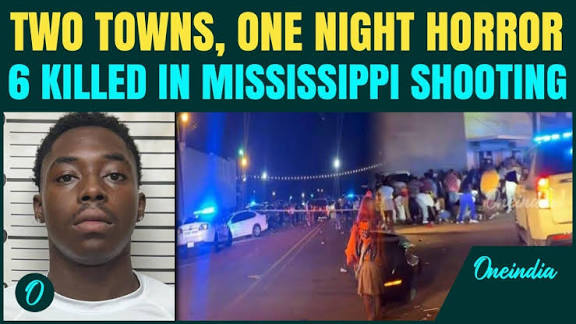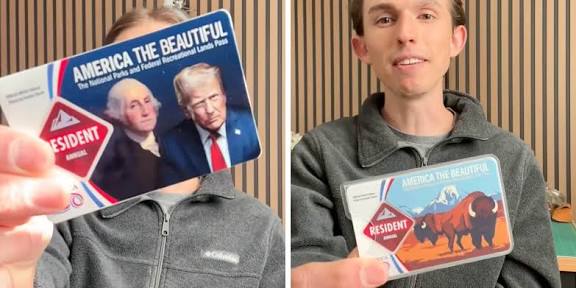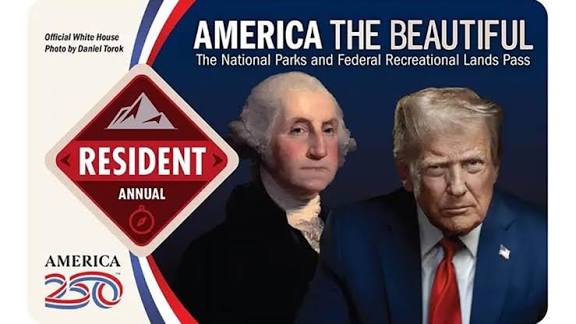Trump Cheers Suspension of Jimmy Kimmel Calls Him Zero Talent
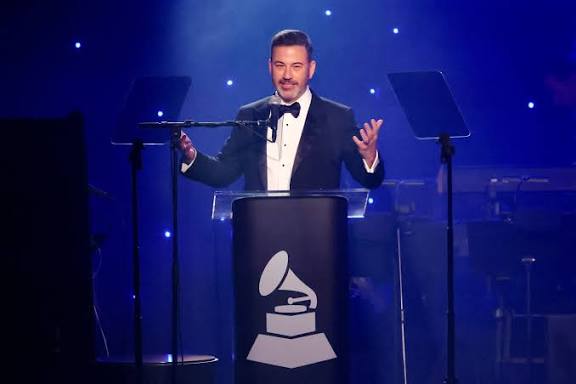
Trump said at a press conference on Thursday that Kimmel was not talented, there was a bad rating. Today we will discuss about Trump Cheers Suspension of Jimmy Kimmel Calls Him Zero Talent
Trump Cheers Suspension of Jimmy Kimmel Calls Him Zero Talent
Recent developments in U.S. media and political life have sparked intense debate over free speech, media regulation, and political criticism. At the center of the drama: the suspension of Jimmy Kimmel Live!, ABC’s late-night show, following controversial remarks by host Jimmy Kimmel about right-wing activist Charlie Kirk. Former President Donald Trump has publicly praised ABC’s move, calling Kimmel “zero talent” and citing poor ratings as justification for the punishment. The incident has drawn sharp reactions from across the political spectrum, raising questions about censorship, government pressure, broadcaster liability, and the role of late-night comedy in political discourse.
This article examines the build-up to Kimmel’s suspension, Trump’s response, free speech concerns, media regulatory dynamics, public reactions, historical precedents, and possible implications for media, politics and culture in the U.S.
Background — What Happened
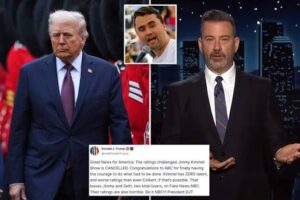
On September 15, 2025, during his opening monologue, Jimmy Kimmel made pointed remarks regarding the assassination of Charlie Kirk, a conservative activist. He alleged that people in MAGA circles were using Kirk’s assassination to score political points, and critiqued conservatives, including President Trump, for their responses. He mocked what he characterized as performative grief, comparing Trump’s reaction to a child’s mourning.
Immediately following the broadcast, backlash mounted:
Nexstar, a major local TV station owner, announced it would stop airing Jimmy Kimmel Live! on its ABC affiliates.
FCC Chair Brendan Carr condemned Kimmel’s comments as “truly sick” and raised regulatory concerns.
ABC subsequently suspended the show indefinitely. The network did not specify how long the suspension would last.
Kimmel has long used his platform to critique political figures, including Trump in earlier times. But this situation stands out for its swift and significant consequences.
Trump’s Response: “Zero Talent”
Donald Trump, while on a state visit to the United Kingdom, seized on this controversy. His public statements included:
Saying Kimmel was suspended (or “fired”) mostly due to poor ratings rather than just the controversial remarks.
Calling Kimmel “not a talented person,” “zero talent,” and saying “they should have fired him a long time ago.”
Praising ABC for having “the courage to do what had to be done.”
Challenging other networks (NBC, etc.) to follow suit with other late-night hosts he views as critical of him, like Jimmy Fallon and Seth Meyers.
Trump argues both that Kimmel’s ratings have dropped and that the host crossed a line with his comments about Charlie Kirk. He frames the suspension as both a deserved professional consequence and a vindication of his criticism of late-night media figures.
Free Speech vs. Professional Consequences
A major fault-line in this controversy lies between two principles:
Free Speech: The idea that individuals have the right to express opinions — including satire, criticism, and provocation — without government suppression, as protected by the First Amendment.
Professional or Contractual Consequences: TV networks and radio stations are private (or quasi-private) entities. They often have editorial standards, FCC obligations, commercial pressures, or affiliate partnerships. If content violates certain standards, offends viewers or station owners, or leads to regulatory risk, the network may take action, even pulling or suspending shows.
Critics argue that the move against Kimmel constitutes government coercion. Former President Barack Obama, among others, has condemned the suspension, saying it resembles a threat to media companies to punish or silence voices critical of those in power.
Supporters of the suspension counter that media platforms are not above consequences, especially when regulatory bodies like the FCC or local station owners express concern or threaten action. They argue that ABC, Nexstar, or the FCC are acting in response to legitimate norms about “public interest,” or statements that many deem offensive.
Regulatory Pressure and the Role of the FCC
The Federal Communications Commission (FCC) has played a strong role in this story.
FCC Chair Brendan Carr publicly criticized ABC and Kimmel. He called Kimmel’s remarks “truly sick,” and suggested the possibility of regulatory consequences.
Nexstar, a station owner operating many ABC affiliates, along with other broadcast owners, threatened to preempt or pull the show. Those threats appear to have pressured ABC into suspending the show.
This raises questions: what obligations do licensed broadcasters have? The public interest standard for broadcasters often includes maintaining certain content standards, especially as regulated by law (FCC rules). However, the First Amendment limits government, including regulatory authorities, from unduly penalizing speech simply because it is critical or offensive, unless it violates specific laws (libel, incitement, etc.).
The tension is: how much regulatory risk is enough to force a network’s hand? And where is the line between legitimate regulation and political pressure?
Ratings, Commercial Reality and Market Incentives
Another angle is commercial and viewership metrics.
Trump and others claim that Kimmel’s show had poor ratings, worse than some peers.
But some data suggests that while Kimmel dropped in some viewership metrics, he still performed relatively well in the key 18-49 demographic, a group especially valuable to advertisers.
Networks and owners have to weigh commercial viability against reputational risk, regulatory exposure, affiliate relations, and political exposure.
From ABC’s perspective, the combination of backlash, threatened loss of affiliate airing, regulatory attention, and possibly advertisers pulling back could make the show more trouble than it’s worth. From Kimmel’s side, or those defending critical or satirical speech, it’s a case of whether networks will protect hosts from political fallout or yield under pressure.
Reactions from Across the Spectrum
Defenders of Kimmel / Free Speech Advocates
Figures like Barack Obama have criticized the move as a dangerous precedent, saying government or quasi-government pressure is being wielded to silence or punish dissenting voices. This, critics say, undermines free speech protections.
Writers’ and actors’ unions, civil liberties groups have also raised alarms, saying that media companies should not succumb to threats or risk of regulation simply because powerful entities find content objectionable.
Supporters of Suspension
Trump and his allies believe the move is justified: they interpret Kimmel’s remarks as not just political opinion but offensive and transgressive. They argue that no one is above criticism or consequence.
Many conservatives also view this as a positive check on what they see as liberal-leaning broadcast media voices that shift between satire and serious allegation.
There is also institutional support: station owners like Nexstar, regulatory bodies like the FCC under current leadership. These entities reflect not just ideological alignment but also their own legal, financial, or reputational risk perceptions.
Historical & Legal Precedents
To understand the weight of this incident, it helps to look at similar events in U.S. media history.
1950’s–70’s FCC Broadcast Standards: The FCC long held that broadcast licensees must act in the public interest. There were pressures (though more indirect) on content that was considered indecent, offensive, or politically inflammatory.
Modern “Cancel Culture” Critiques: There have been prior cases where public figures or corporate entities faced backlash, advertiser pullback, or content removal for statements perceived as beyond the boundaries of acceptable discourse. What often demarcates controversy is whether government or regulatory bodies are directly involved.
Legal Precedents on Free Speech: U.S. Supreme Court cases (e.g. New York Times Co. v. Sullivan, Brandenburg v. Ohio) set limits on regulation of speech; unless speech incites imminent lawless action or is defamatory, it enjoys robust constitutional protection.
But private entities (networks, station owners) are generally free contractually and under business law to decide what content to air or not air, provided they comply with laws. The real question is whether regulatory or governmental pressure moves beyond legal regulation into coercion.
Key Issues & Questions Raised
This incident surfaces numerous key questions:
What counts as acceptable criticism or satire when dealing with political violence or tragedy?
Kimmel’s monologue critiqued processes of political exploitation, but critics argue it crossed a line in its tone or phrasing.When does regulatory scrutiny become coercion or censorship?
FCC involvement, station threats, network responses — where is the legal line between oversight and political pressure?How much should ratings or commercial viability protect content creators from backlash?
If ratings are down, networks may find it easier to justify removal; but if ratings remain strong in key demographics, the calculus is more complex.Is the precedent dangerous for critical media voices under powerful administrations?
If broadcasters and comedians risk suspension for commenting on politically sensitive events, that can chill speech.What role do corporations, affiliates and broadcast owners play in shaping political speech?
Station owners like Nexstar are not directly political actors in many ways, but their business interests bring them into the fray.
Analysis: Who Wins, Who Loses
Trump / Supporters claim a win: By condemning Kimmel’s remarks, triggering regulatory pressure and resulting in suspension, they reinforce their narrative that the media is biased and must be held accountable. It energizes their base to see media figures face consequences.
Kimmel / Media Critics face losses: suspension hurts his platform, reduces his ability to reach his audience, and sets a chilling example for others. Also reputational risk, potential loss of advertisers, and possibly legal exposure if contracts or FCC rules are invoked.
Networks and Station Owners are in a difficult position: ABC must balance defending creative freedom and satire against legal/regulatory risk, affiliate pressure, and political blowback. Station owners like Nexstar, who threatened pre-empting broadcasts, show how influential local broadcast infrastructure can be in enforcing consequences.
Free Speech Institutions potentially lose or gain: If this leads to a pattern where speech critical of powerful allies of government is routinely punished, that erodes norms of free expression. On the other hand, if networks push back or courts intervene, some precedent may be set to protect critical voices.
Implications for Media, Politics & Society
Chilling Effect: Media hosts, comedians, writers may self-censor, avoiding controversial commentary, especially on politically sensitive topics, out of fear of regulatory or professional consequences.
Polarisation of Media Trust: Supporters of Trump and conservative audiences may see this as long overdue accountability. Liberal or independent viewers may see it as politicised suppression. This deepens partisan divides in media trust.
Regulation & Legislation: Might spur renewed debate in Congress or courts over media regulation, FCC powers, and protections for speech. Democratic lawmakers already appear to be planning responses.
Late-Night Comedy’s Role: These shows have historically functioned as venues for political satire, criticism, and dissent. But this incident may force hosts to reconsider how they frame criticism of public figures, activists, or political events.
Corporate, Affiliate & Advertiser Pressures increase: Those with business interests tied to regulations (e.g. FCC license renewals) or broad audience reach may be more risk-averse.
Counterpoints and Nuances
It is not clear that ABC “fired” Kimmel in a formal sense. Some reporting says his show was “suspended indefinitely,” not permanently canceled.
Kimmel’s defenders might point out that while ratings have dipped in some metrics, he still had competitive viewership in key demographics. So the rating-argument may not fully explain the severity of the response.
There is ambiguity over whether all criticisms of Kimmel’s remarks are fair. Some argue that criticism of political leaders, even if biting or mocking, is a normal part of political discourse and satire has historically been protected.
The legal threshold for “coercion” by government is high. For free-speech claims against regulatory or governmental pressure, there needs to be evidence of direct or indirect compulsion, not just criticism or expression of displeasure.
What Comes Next?
Legal or Court Challenges: Kimmel or his network could explore if the suspension involved any violation of contractual or constitutional rights. However, litigation would be difficult and slow.
Public Debate and Legislative Action: Expect further debate in Congress about whether FCC powers should be limited, or how to safeguard media free speech under pressure. Some Democratic politicians are reportedly outraged.
Industry Response: Other hosts may alter their approach; networks may update policies for how hosts address political violence or create disclaimers; broadcast owners may be more assertive in pressuring content.
Regulatory Precedents: This could set precedent for how station owners and regulators respond to content deemed offensive by political groups. If unchallenged, it could expand the idea that controversial political commentary carries real risk of suspension.
Public Opinion & Ratings: How the audience reacts in subsequent weeks will matter. If Kimmel’s suspension leads to backlash among viewers, pressure could mount for his reinstatement, or for networks to reaffirm protections for satirical speech.
Broader Cultural Signals: The case may become a symbol for concerns about suppression, cancel culture, the role of satire in democracy, and the balance between offensive content and political criticism.
Conclusion
The suspension of Jimmy Kimmel Live!, following controversial remarks about Charlie Kirk, and Donald Trump’s loud praise for the move—including calling Kimmel “zero talent”—represent more than a clash between a late-night comedian and a politician. They underscore a deeper tension in American democracy: how to balance free expression, artistic and comedic license, political critique, with regulatory norms, commercial pressures, and the demands of political power.
While supporters see accountability and pushback against perceived excesses, critics see a dangerous precedent of political interference, suppression of dissent, and erosion of the protections that political satire has long enjoyed. What happens next—legal, political, and cultural responses—may well define the boundaries of acceptable speech, the independence of media, and the health of free discourse in the United States.
How useful was this post?
Click on a star to rate it!
Average rating 0 / 5. Vote count: 0
No votes so far! Be the first to rate this post.
About the Author
usa5911.com
Administrator
Hi, I’m Gurdeep Singh, a professional content writer from India with over 3 years of experience in the field. I specialize in covering U.S. politics, delivering timely and engaging content tailored specifically for an American audience. Along with my dedicated team, we track and report on all the latest political trends, news, and in-depth analysis shaping the United States today. Our goal is to provide clear, factual, and compelling content that keeps readers informed and engaged with the ever-changing political landscape.

